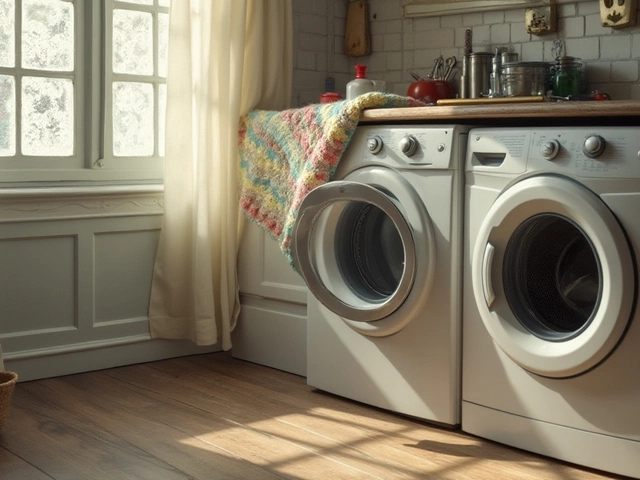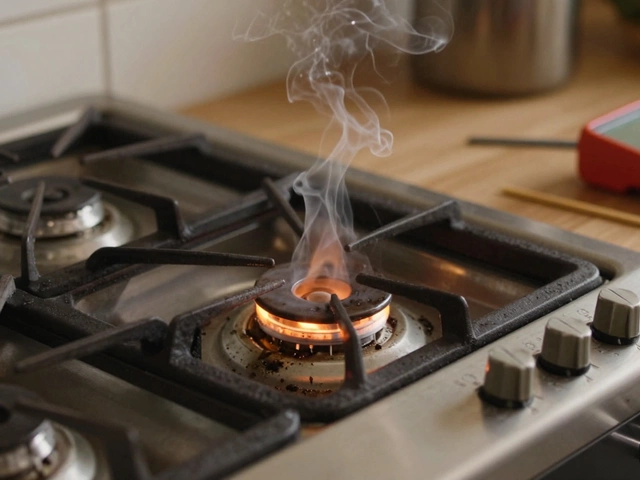Common Washing Machine Parts That Frequently Fail
January 17 2025Appliance Maintenance Made Easy
Ever wonder why your boiler hisses, a fan clunks, or a water heater takes forever to heat? Most of the time it’s not a major failure – it’s just a lack of regular care. A few quick checks each month can keep your appliances humming, cut down on pricey call‑outs, and extend their life. Below you’ll find the most practical tips for the most common household gear.
Quick DIY Checks for Common Appliances
Boiler: Turn the thermostat down a notch and listen for unusual noises. Wipe the pressure gauge and make sure it sits between 1 and 1.5 bar when the system is cold. Flush the radiator bleed valves once a season to release trapped air. If the pilot light flickers or the flame looks uneven, schedule a service – it could be a safety issue.
Extractor Fans (Kitchen & Bathroom): Every three months, pop off the cover, remove the filter and soak it in warm, soapy water. Clean the fan blades with a soft brush, then dry everything before re‑assembling. Run the fan for a minute; if it still rattles or smells burnt, the motor may need lubrication or a professional’s eye.
Water Heater: Drain a few gallons once a year to flush out sediment that lowers efficiency. Check the temperature setting – 120 °F (49 °C) is usually enough and saves energy. Look for rust or corrosion around the tank base; any signs of leaks mean you should call a qualified engineer fast.
Oven & Microwave: For ovens, wipe the interior after each use and avoid harsh chemicals that damage the heating element. Test the element by turning the oven to 350 °F; you should feel heat within a few minutes. In microwaves, clean the turntable and interior walls regularly; a buildup of food splatter can cause uneven cooking and spark hazards.
Washing Machine & Dryer: Run an empty hot wash with a cup of white vinegar every month to clear soap scum. Inspect dryer lint trays and vent hoses; a clogged vent is a fire risk and reduces drying efficiency. Tighten any loose hoses or clamps to prevent leaks.
When to Call a Professional
DIY fixes are great, but they have limits. If you notice any of these red flags, stop the DIY route and call a certified engineer.
- Boiler makes high‑pitch whistling, trips the breaker, or shows an error code.
- Fan motor smells burnt, sparks, or won’t start after cleaning.
- Water heater leaks, makes loud rumbling noises, or the pressure relief valve constantly releases.
- Oven won’t heat above 200 °F, or the microwave stops heating at all.
- Washing machine shakes violently, doesn’t spin, or dryer produces a burning smell.
These problems can affect safety and often need specialist tools or gas certifications. A professional can also perform a full service—checking gas connections, electrical safety, and overall efficiency—that you simply can’t do at home.
Bottom line: Spend a few minutes each month on the simple tasks above, and you’ll catch most issues before they turn into costly breakdowns. When something feels out of the ordinary, trust a qualified gas engineer to give it a proper look. Your appliances will thank you with years of reliable performance, and your wallet will stay a little heavier too.
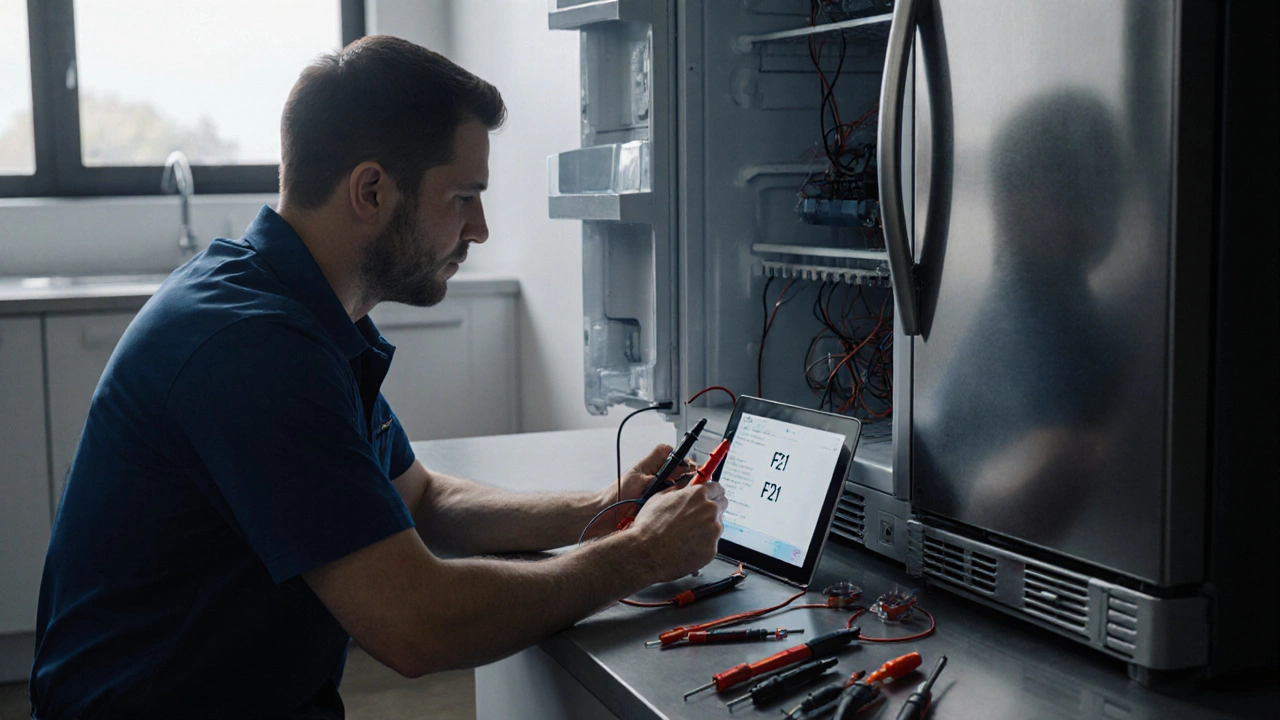 24 Nov
24 Nov
What Is the Role of an Appliance Specialist?
An appliance specialist diagnoses, repairs, and maintains household appliances with technical expertise, safety knowledge, and brand-specific experience. They save you money by fixing instead of replacing and ensure your machines run safely and efficiently.
Read More...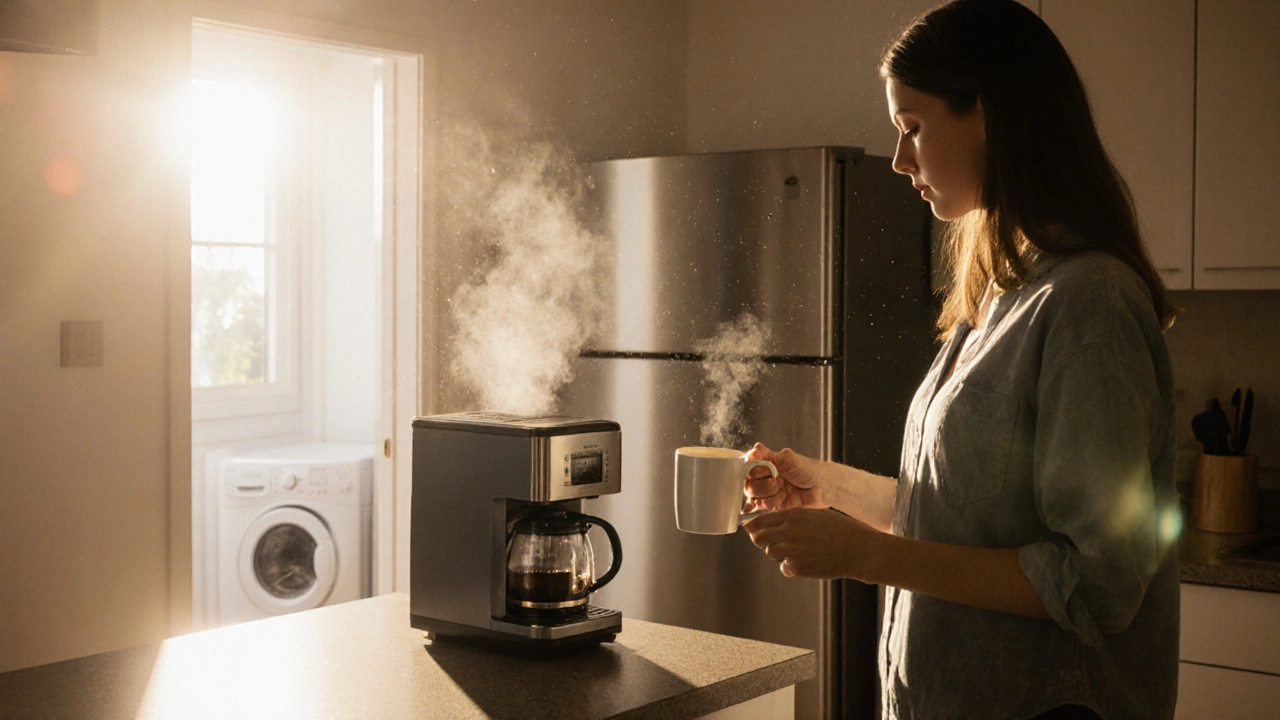 4 Oct
4 Oct
Do Appliances Need Service? Essential Guide to Maintenance & Longevity
Learn why regular appliance service matters, how often to schedule checks, cost benefits, warning signs, and DIY vs professional tips for extending appliance lifespan.
Read More... 20 Mar
20 Mar
Is it Worth Repairing a Freezer?
Deciding whether to repair or replace a freezer can be tricky. This article provides insights into when it's worth repairing your freezer, factors affecting the decision, and cost-effective tips to keep it running efficiently. Explore signs that your freezer needs repair and preventive measures to extend its lifespan. Know the common repair costs and compare them with replacement options.
Read More... 7 Mar
7 Mar
Is It Worth It to Repair an Electric Stove?
Electric stoves are essential kitchen appliances, but when they break down, deciding whether to repair them can be confusing. This article explores the practicality and cost-effectiveness of fixing an electric stove, while offering practical tips for troubleshooting common issues. Learn about the signs that signal the need for repair versus replacement, and gain insights into potential costs. Additionally, discover easy DIY fixes that may prolong your stove’s life and save you money. Get informed and make the best choice for your home.
Read More... 28 Feb
28 Feb
Is It Worth Fixing a 7-Year-Old Refrigerator?
Wondering if it's worth fixing a 7-year-old refrigerator? This article helps you weigh the pros and cons, considering the cost of repairs versus buying new. It explores factors like energy efficiency, common repair issues, and tips for prolonging your fridge’s life. Understand what to expect from a fridge of this age and how to make a smart decision.
Read More... 2 Jan
2 Jan
Essential Appliances and Their Importance in Modern Homes
Appliances have become indispensable in modern households, making our daily routines easier and more efficient. From refrigerators to washing machines, knowing how to choose and maintain these essential tools can save time and money. This article explores four key appliances, providing guidance on their maintenance and highlighting interesting facts that emphasize their role in our homes. It's a practical guide for anyone looking to optimize their domestic life.
Read More...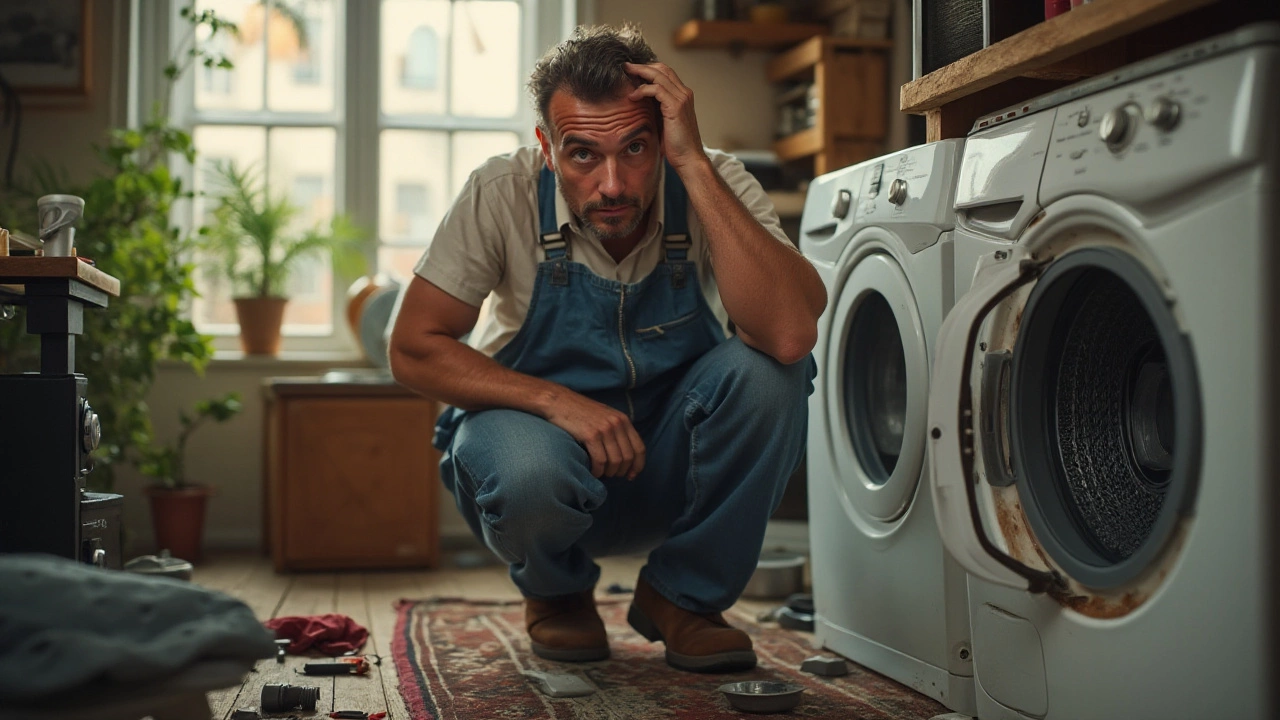 21 Dec
21 Dec
Key Moments to Skip Dryer Repairs: What to Know
Deciding when not to repair a dryer can save you time, money, and energy. While some issues can easily be fixed, recognizing situations where a repair is not worth the effort is crucial. This article explores common dryer problems and offers insights into when it's best to consider replacement over repair. Learn about safety hazards and financial considerations that influence the decision to retire your dryer. Get tips on evaluating repair costs and when it's preferable to invest in a new appliance.
Read More... 14 Dec
14 Dec
Is Repairing Your 15-Year-Old Oven Worth It? A Guide to Electric Oven Troubleshooting
Considering whether to repair a 15-year-old oven requires weighing the cost of repairs against the value of a new appliance. Understanding the common issues that aged ovens face, and the typical repair costs can help homeowners make an informed decision. With modern advancements in energy efficiency and oven technology, there's a balance to be struck between preserving the familiar and investing in the future. This guide provides tips and insights to assist you in assessing whether it's time for repairs or a replacement.
Read More...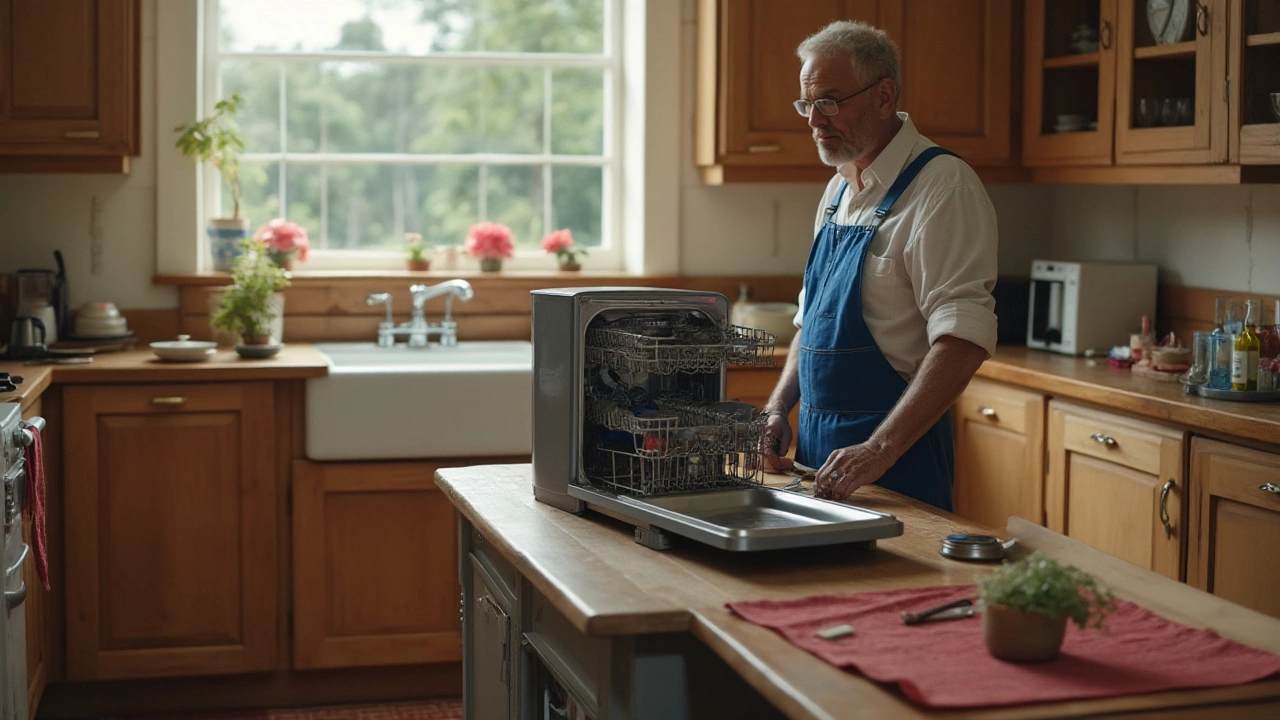 2 Dec
2 Dec
Is Repairing Your Dishwasher a Smart Move? Pros and Cons Explained
Deciding whether to repair or replace a dishwasher can be tricky. Factors such as cost, age, and the nature of the problem play vital roles in this choice. The article explores these elements, offering insight into when a repair is a viable option and when replacement might be more practical. Understanding the lifespan and common issues of dishwashers can help you make an informed decision.
Read More...